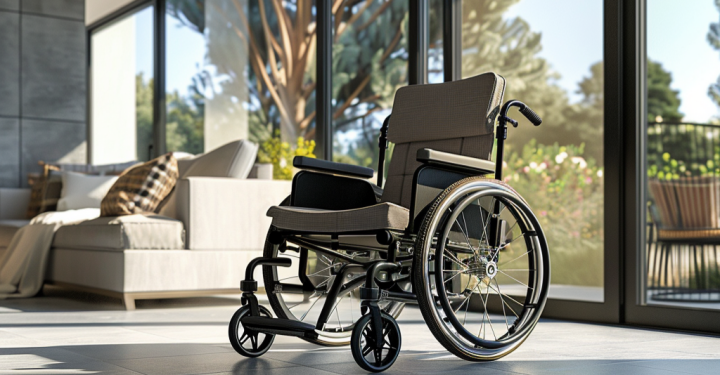Types of Wheelchairs
Wheelchairs come in various types, each designed to meet different needs and preferences:
- Manual Wheelchairs: Powered by the user’s arms or an attendant pushing from behind. They are lightweight and easy to transport.
- Standard Manual Wheelchairs: Basic models suitable for short-term use.
- Lightweight Manual Wheelchairs: Easier to maneuver and transport, suitable for more active users.
- Sports Wheelchairs: Designed for athletic activities, offering enhanced maneuverability and speed.
- Power Wheelchairs: Battery-operated chairs controlled by a joystick or other electronic device, suitable for users with limited strength or mobility.
- Standard Power Wheelchairs: Ideal for indoor use with basic features.
- Heavy-Duty Power Wheelchairs: Built for larger users and rugged terrain, offering increased weight capacity and durability.
- Portable Power Wheelchairs: Designed for easy disassembly and transport.
- Transport Wheelchairs: Lightweight and foldable, designed to be pushed by an attendant. Ideal for short trips and travel.
- Standing Wheelchairs: Allow users to switch between sitting and standing positions, providing health benefits such as improved circulation and reduced pressure sores.
Features to Consider
When choosing a wheelchair, several features should be considered to ensure it meets your specific needs:
- Weight and Portability: Consider the weight of the wheelchair and how easy it is to transport, especially if it will be used for travel.
- Seat Width and Depth: Ensure the seat dimensions are appropriate for the user’s body size for maximum comfort and support.
- Weight Capacity: Check the maximum weight capacity to ensure it can safely support the user.
- Wheel Type: Different wheels are suited for different terrains. Larger wheels are better for outdoor use, while smaller wheels are suitable for indoor use.
- Adjustability: Look for adjustable features such as seat height, backrest angle, and footrests to enhance comfort and usability.
- Cushioning and Support: Consider the type of seat cushion and back support to prevent pressure sores and provide comfort during prolonged use.
- Battery Life (for Power Wheelchairs): Ensure the battery life is sufficient for your daily activities and travel needs.
- Tips for Choosing the Right Wheelchair
Selecting the perfect wheelchair involves considering personal needs, lifestyle, and specific medical requirements:
- Assess Mobility Needs: Determine whether a manual or power wheelchair is more suitable based on the user’s strength and mobility level.
- Consult a Professional: Work with a healthcare provider or a mobility specialist to get recommendations based on individual needs and medical conditions.
- Test Different Models: If possible, try out different wheelchairs to find the one that offers the best comfort and ease of use.
- Consider Future Needs: Think about any potential changes in mobility or health that might affect the type of wheelchair needed in the future.
- Check for Customization: Some wheelchairs offer customization options to better fit the user’s specific requirements.
- Maintenance and Care
Proper maintenance is essential to keep a wheelchair in good working condition:
- Regular Cleaning: Clean the wheelchair regularly to prevent dirt and debris buildup.
- Inspect Tires and Wheels: Check for wear and tear and ensure tires are properly inflated.
- Battery Maintenance: For power wheelchairs, follow the manufacturer’s instructions for battery care and charging.
- Lubricate Moving Parts: Regularly lubricate axles and other moving parts to ensure smooth operation.
- Professional Servicing: Schedule regular check-ups with a professional to address any mechanical issues and ensure the wheelchair remains safe to use.
Conclusion
Choosing the right wheelchair can greatly enhance mobility and quality of life for individuals with mobility challenges. By understanding the different types of wheelchairs, considering essential features, and seeking professional advice, you can find the perfect wheelchair to meet your needs. Proper maintenance and care will ensure your wheelchair remains reliable and functional for years to come.
